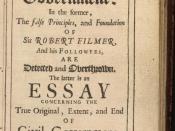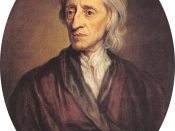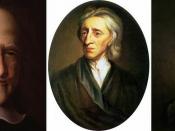The Enlightenment was an 18th century intellectual movement concentrated in France that had lasting repercussions throughout Europe and America. Questioning traditional doctrines and values marked the Enlightenment; there was a notable tendency towards individualism and emphasis on the ideas of human progress. Celebrated philosophes such as Francois-Marie Arouet also known as Voltaire (1694-1778) and the enigmatic Jean-Jacques Rousseau (1712-1778) marked some of the intellectual catalysts for the new ideas and approaches to old customs that wore down institutionalized traditions. The philosophes crafted the vocabulary for the French and American Revolutions, not by being advocates of violent revolution, but by encouraging free use of reason and the universality of humanity and natural rights. These same principles evoked a rallying cry throughout France and later America for systematic governmental changes; these cries manifested themselves in the form of the American and French Revolutions. The American Constitution and the Bill of Rights are both products of the Enlightenment and ideas of the philosophes, in particular John Locke.
The political theorist and elitist, John Locke (1632-1704) wrote the "Second Treatise on Government", in this work he hypothesized that man is naturally a social animal, characterized by reason and tolerance. He also maintained that in man's "State of Nature" men were equal and "free to pursue life, health, liberty and possessions". For this reason he believed that a mythical contract existed to provide common defense and necessities for the people based on mutual consent. Locke being an optimist thought that it is man's human nature to be naturally good and humane towards his fellow man, for this reason he felt that government was organized in order to protect the inalienable rights of man: life, liberty and property. Locke had knowledge of Natural Law; the law asserts that there is some kind of...


